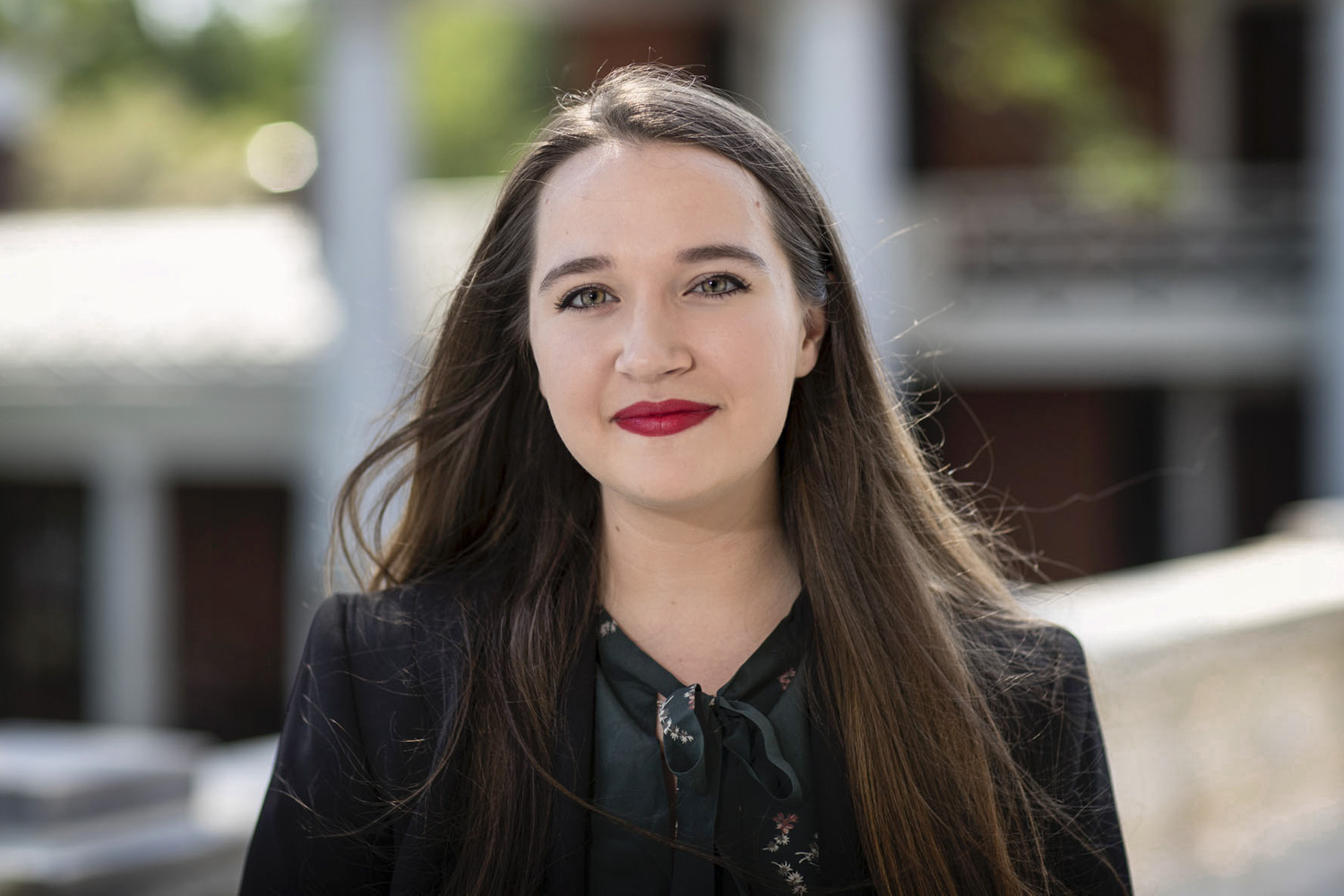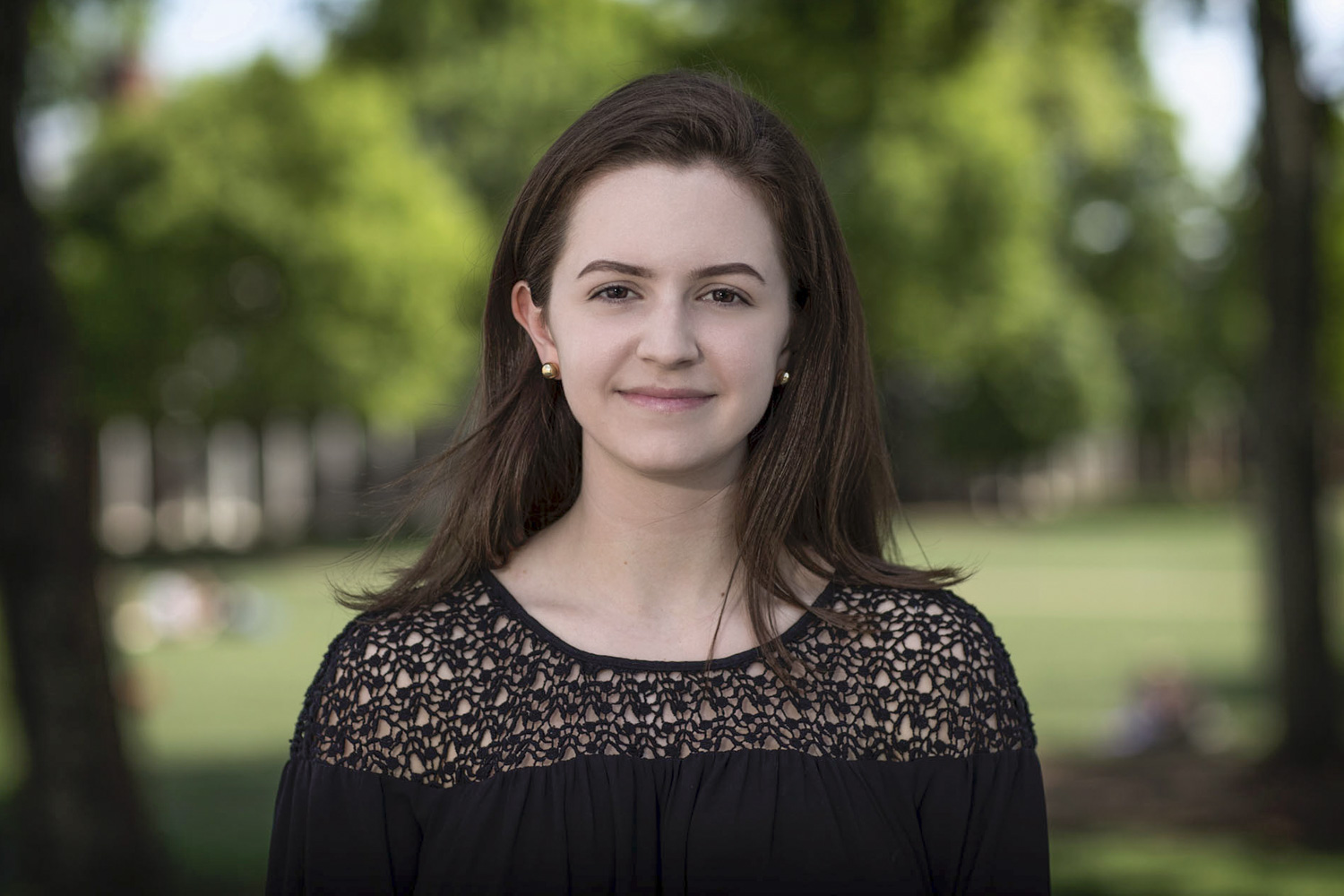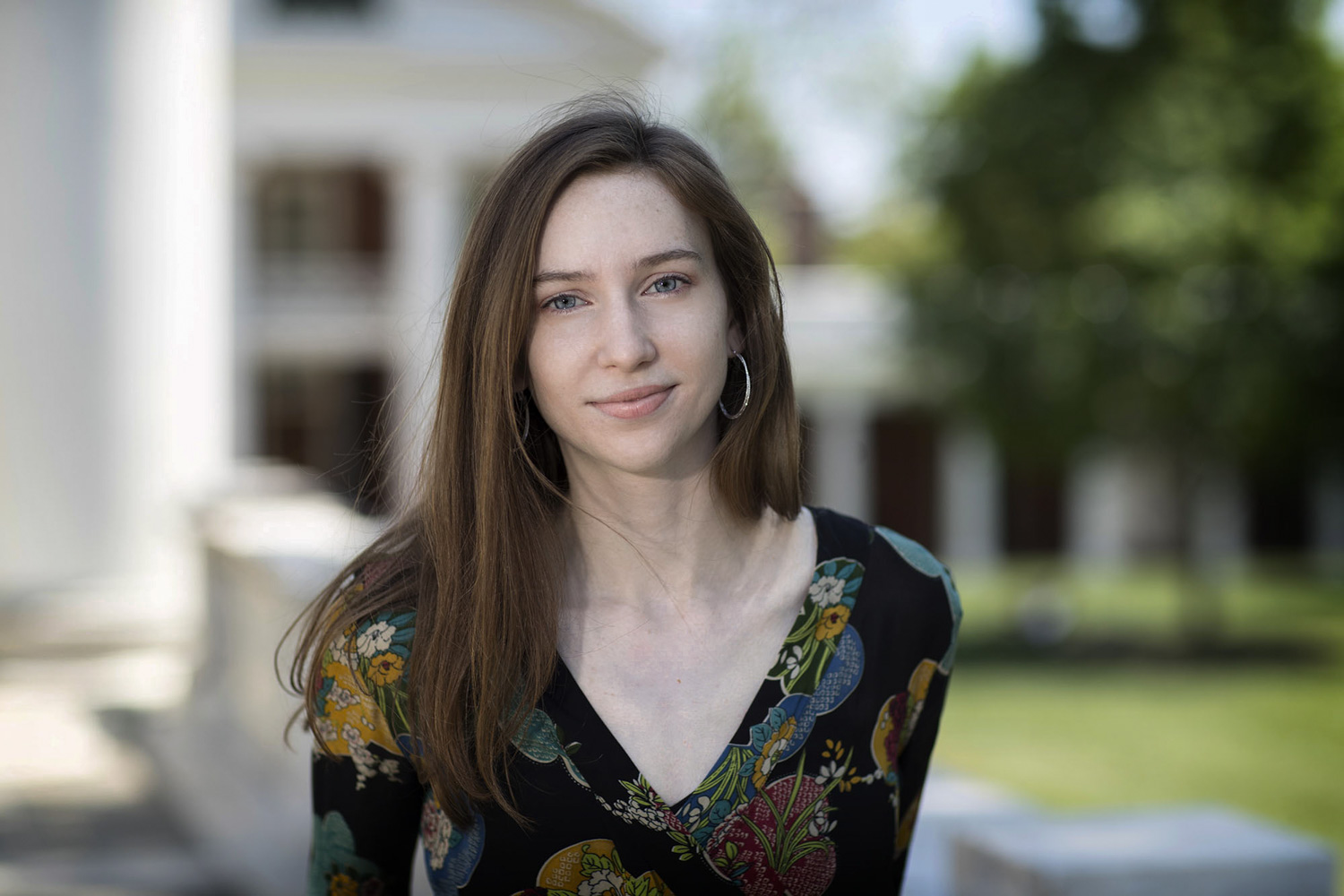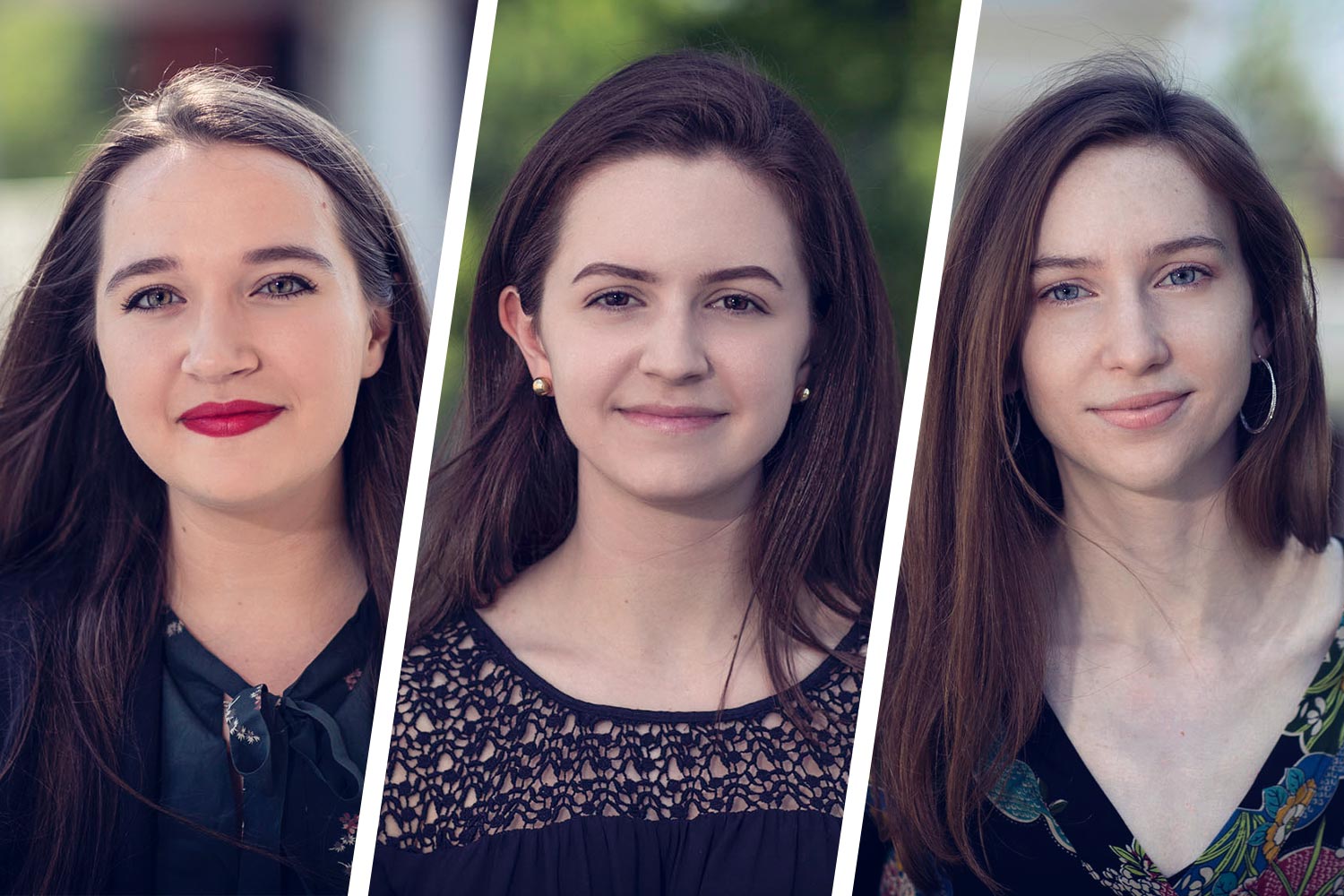Three University of Virginia scholars will spend the summer immersed in foreign cultures and languages, thanks to the Critical Language Scholarships from the U.S. Department of State.
They are among approximately 550 U.S. undergraduate and graduate students who received scholarships from the program. They will spend seven to 10 weeks this summer in intensive language institutes in one of 13 countries, studying languages the U.S. government has deemed “critical”: Arabic, Azerbaijani, Bangla, Chinese, Hindi, Korean, Indonesian, Japanese, Persian, Punjabi, Russian, Swahili, Turkish or Urdu.
UVA’s participants are:
- Katya Sankow of Pittsburgh and Winchester, a second-year Russian and Eastern European studies major, who will study Russian in Vladimir, Russia.
- Olivia Moffett of Centreville, a third-year student double-majoring in Chinese language and literature and economics, with a minor in Middle Eastern studies and Arabic, who will study Mandarin in Xi'an, China.
- Olivia Grotenhuis of Madison, a second-year student double-majoring in foreign affairs and East Asian studies with a concentration in Korean, who will study Korean at Chonnam National University in Gwangju, Korea.
The Critical Language Scholars program provides group-based, intensive language instruction and structured cultural enrichment experiences. Participants, who are expected to continue their language study beyond the scholarship and apply their critical language skills in their future professional careers, hail from 49 states, Puerto Rico and the District of Columbia and represent more than 200 institutions of higher education from across the United States.
“I think it is great that these students will be furthering their understanding of Chinese, Korean and Russian,” said Andrus G. Ashoo, who directs UVA’s Office of Citizen Scholar Development. “With as many students studying critical languages as we have, I think many more at the University of Virginia should pursue this fully funded opportunity to further their language learning. There are not many opportunities to develop such linguistic competency in such a short amount of time.”
Katya Sankow

Katya Sankow of Winchester will study Russian in Vladimir, Russia.
Sankow is half-Bulgarian, and her perceptions of Russia have always been mixed.
“Russia and Bulgaria have a historically close relationship, and Bulgarians are increasingly favorable and trustful of the Russians, while there is an opposite trend in America,” she said. “So while I grew up hearing negative outlooks of Russia on American media, I heard positive outlooks and accounts from my own family members. These were the perfect breeding grounds for topical curiosity.”
She completed a high school program, offered through Tufts University, that taught an introduction to international relations. “The professor was a Russian area specialist, so I got to learn the foundations of Russian politics at a young age,” she said. “This has influenced how I have evaluated politics ever since.”
At UVA, Sankow is the vice president of the International Relations Organization and has competed in and chaired several Model United Nations conferences. She has been a volunteer for The Haven (a local day shelter for the homeless) and for Volunteers with International Students, Staff and Scholars; researched and produced podcasts with the Global Inquirer; planned programs for new residents of Brown Residential College; and is a member of the Washington Literary Society and Debating Union. She was also an assistant teacher for an English language and culture program in Bulgaria. A graduate of Peters Township High School, she plans to enter the Peace Corps after graduation.
“Then I want to pursue a master’s degree where I can focus on economic and political development in Eastern Europe and Russia,” she said. “Career-wise, ideally, I would like to work in conflict resolution, security and/or intelligence. I could also see myself joining the diplomatic corps.”
Olivia Moffett

Olivia Moffett of Centreville will study Mandarin in Xi'an, China.
Moffett said the Critical Language Scholarship “aligns perfectly with my career goals.”
“I have always been very interested in a career with the government,” she said. “I’ve also been very eager at the thought of improving my Mandarin skills through an intensive study-abroad program. The Critical Language Scholarship will allow me to explore both of these interests during the summer.”
Moffett was president of the Metcalf-Lefevre Association Council of the First Year Leadership Experience, and then served on the Second Year Council’s Academic and Wellness Committee. She is a recolonizing member of Tri Sigma (Delta Chi Chapter); has been on the finance committee of Phi Alpha Delta pre-law fraternity; an editor for Virginia Undergraduate Law Review; a member of the Econ Club; and a competing member of the Virginia Competitive Cheer team. Her artwork has been featured in Veritas Art Show at the UVA School of Medicine. She has interned at a finance startup, NextGenVest, working on student loans. She is also a licensed Realtor. A graduate of Centreville High School, she is contemplating graduate school.
“I am considering a higher degree in an area that would complement my current studies, such as a business or STEM degree,” she said. “I also hope to pursue any opportunities I find available to me in terms of beginning a career abroad.”
Mark Metcalf, a lecturer in Chinese literature in the Department of East Asian Languages, Literatures and Cultures, taught Moffett in “Survey of Traditional Chinese Literature,” a course in English translation that covers China's literature from roughly 1000 BCE to 1000 CE.
“Olivia's performance as a student was spectacular,” he said. “She was fully engaged in classroom discussions, routinely providing insightful observations about the day’s readings. She also wrote four expertly crafted essays that demonstrated her thorough understanding of both the historical development of traditional Chinese literature and the literary significance of individual works. It was a pleasure having her in class.”
Olivia Grotenhuis

Olivia Grotenhuis of Madison will study Korean at Chonnam National University in Gwangju, Korea.
Grotenhuis took a gap year after high school and served as an intern with California-based Liberty in North Korea, a nonprofit that rescues and resettles North Korean refugees. That’s when “I found my passion in Korean-American relations,” she said, “and I hope to use my degree to pursue a career as an expert on the Korean peninsula.”
JungHee Kim, lecturer in Korean in the Department of East Asian Languages, Literatures and Cultures, praised Grotenhuis for her diligence in pursuing Korean on her own as a high school student with online materials and working with local Korean speakers.
“Olivia is bright, sincere, diligent and genuinely well-rounded,” Kim said. “She is extremely passionate about both the Korean language and culture through the political point of view. I can see that Olivia knows how to integrate her Korean language skills into her interests.”
Grotenhuis is a member of the Transfer Advisory Board, the Liberty in North Korea club and the U.N Women’s Committee, and is a participant in the Women’s Leadership Development Program. A graduate of Veritas Press Academy, an online classical education high school, she plans to pursue a career in the State Department.
“My long-term goal is to obtain a higher degree and become specialized in the Korean peninsula,” Grotenhuis said. “I am especially interested in the unique role that North Korean defectors play in accelerating grassroots change in the Democratic People’s Republic of Korea.”
The Critical Language Scholarship gives Grotenhuis an opportunity to fulfill a dream she has had for some time.
“Since my senior year of high school, I knew I wanted to study abroad in Korea,” she said. “Because my goal is to be specialized in the Korean peninsula, it’s vital that I am able to understand and speak Korean proficiently. While I have been studying Korean for a few years, nothing can compare to a full-immersion experience like what CLS provides.”
Media Contact
Article Information
May 24, 2018
/content/learning-foreign-language-being-there-makes-all-difference-0

